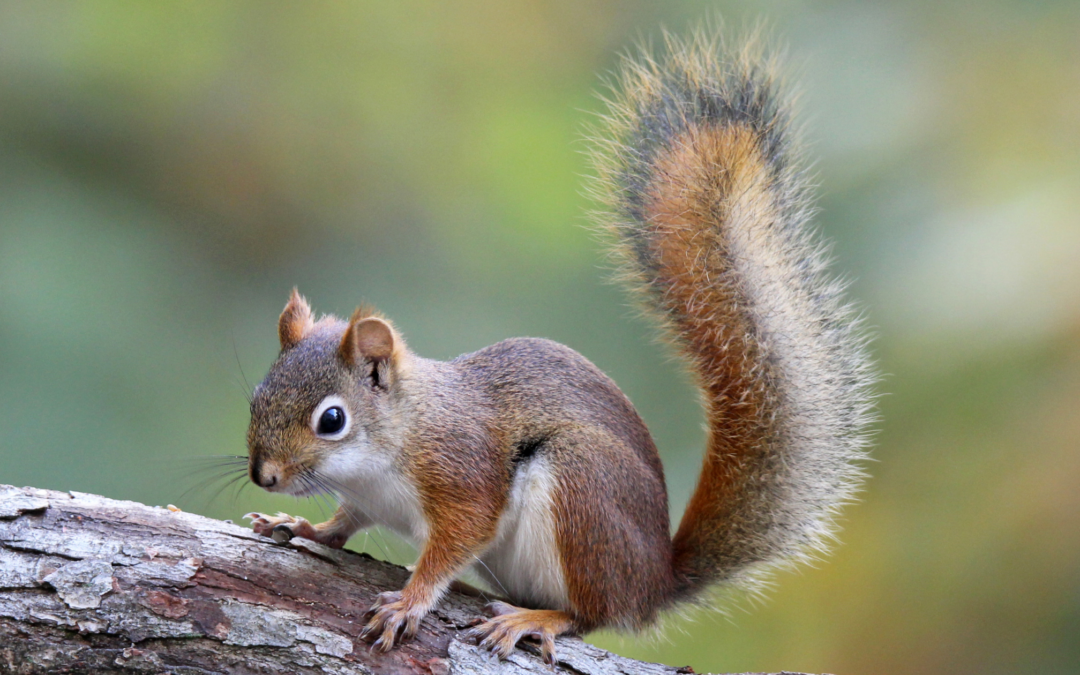
Dec 13, 2024 | Wildlife
As temperatures drop in Georgia, wild animals, particularly squirrels, begin seeking shelter from the cold. While their playful antics can be enjoyable to watch in your yard, squirrels can quickly turn into a wildlife problem when they invade your home. Understanding why squirrels become problematic in the winter, how they gain access to your home, and wildlife control methods you can use to eliminate them can help you stay one step ahead of these resourceful rodents.
Winter Wildlife Control
Why Squirrels Cause Problems in Winter
Squirrels are among the most active wild animals during winter, despite the cold. Unlike hibernating species, they remain awake and spend much of their time foraging for food and securing warm places to nest. Unfortunately, this often leads them to target homes as their winter havens.
When squirrels enter your home, they can cause significant damage, including:
- Chewing on electrical wires: This increases the risk of electrical fires.
- Gnawing on wood and insulation: This compromises the structural integrity of your home.
- Contaminating spaces with urine and droppings: This poses health risks to your family.
- Nesting materials accumulation: These can block vents and other important systems in your home.
Squirrels can reproduce quickly, and what begins as a small wildlife problem can escalate into a major nuisance wildlife control challenge if not addressed promptly.
How Squirrels Get Into Your Home
Squirrels are agile climbers and excellent chewers, making it easy for them to find entry points into your home. Common ways they gain access include:
- Roof Damage: Loose shingles, gaps near vents, or damaged soffits provide easy access.
- Chimneys: Uncovered or damaged chimneys are like open invitations.
- Attic Vents: Squirrels can gnaw through weak or damaged vent covers.
- Gaps Around Windows or Doors: Small cracks or gaps are often big enough for squirrels to squeeze through.
- Overhanging Trees: Branches that touch or hang close to your roof act as bridges for squirrels.
Once inside, they quickly make themselves at home, chewing and nesting in attics, crawlspaces, and even walls.
Preventing a Squirrel Infestation
Stopping a squirrel infestation before it starts is key to avoiding costly damage. Here are some effective prevention tips:
- Seal Entry Points
Inspect your home for potential entry points, including roof vents, chimneys, and gaps in siding. Use materials like metal mesh or heavy-duty caulk to block these areas. Consider installing a chimney cap to prevent access.
- Trim Tree Branches
Keep trees trimmed at least 6-8 feet away from your home to limit squirrels’ ability to jump onto your roof.
- Secure Food Sources
Remove bird feeders or use squirrel-proof designs to avoid attracting them to your yard. Additionally, keep outdoor trash cans sealed tightly.
- Maintain Your Attic
Regularly inspect your attic for signs of wildlife problems, such as droppings, gnaw marks, or nesting materials.
- Call a Professional Wildlife Control Company
If you notice squirrels attempting to gain access to your home or find signs of an infestation, it’s crucial to act quickly. Professional wildlife control services can safely and effectively remove nuisance wildlife and seal entry points to prevent reentry.
Why Choose Professional Wildlife Removal
While DIY methods may seem appealing, handling wild animals can be dangerous and ineffective if not done properly. A professional wildlife control company has the tools, experience, and knowledge to:
- Identify all entry points and vulnerable areas.
- Safely remove squirrels and other nuisance wildlife without harming them.
- Provide long-term prevention solutions, such as exclusion work.
- Offer peace of mind that your home is safe from future infestations.
Trust Local Experts in Wildlife Control
If you’re searching for “wildlife control near me” in Georgia, look no further than a trusted local wildlife control service. Protect your home and family from the risks of squirrels and other wild animals this winter by enlisting the help of experienced professionals.
Don’t let squirrels make your home their winter retreat. Contact a professional wildlife control company today to schedule an inspection and ensure your home stays safe and secure all season long.
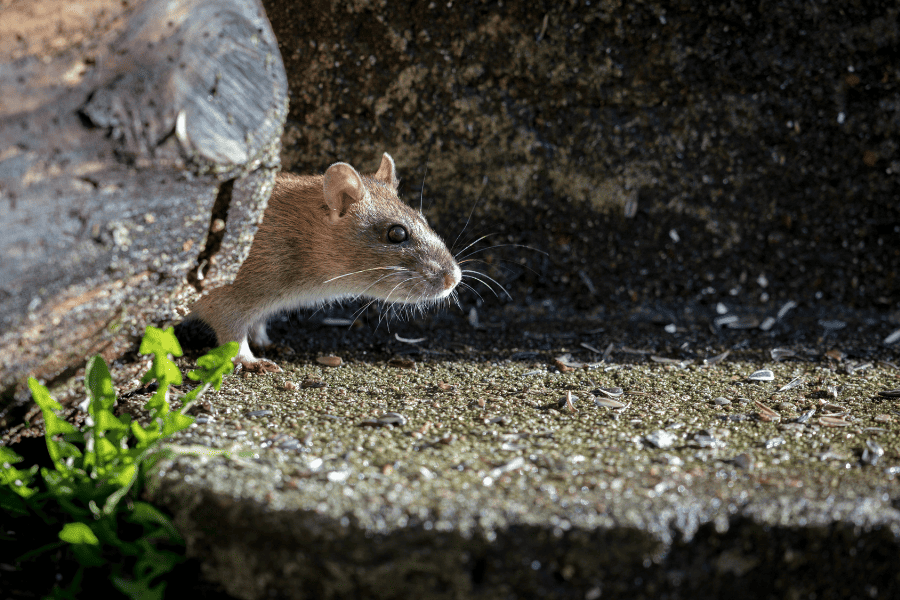
Jul 25, 2023 | Florida Pest Control
Common to the Florida area, rodents can cause significant damage to our homes by chewing on wires, destroying insulation, and contaminating our living areas. There are several types of rodents in Florida that homeowners should be aware of to properly prevent them from invading. Check out our list of common rodents and how to prevent them from invading your home.
Types of Rodents in Florida:
- Norway Rats: Norway rats have brown fur and can grow up to 10 inches long! They typically live in burrows and will enter homes through gaps in the foundation or holes in walls.
- Roof Rats: Roof rats are smaller than Norway rats and can be typically found in the upper parts of buildings, such as attics, roofs, and trees. You can tell them apart from other rats as they have longer tails and are gray or black.
- House Mice: House mice are small and can fit through very small openings. You’ll typically find these mice in kitchens and they are often identified by their droppings, which are small and black.
- Squirrels: Cute but not so cuddly, squirrels are known to invade our yards and attics! Once inside, these wildlife creatures can cause significant damage to homes by chewing on wires and insulation.
Preventing Rodents from Invading Homes:
- Seal Entry Points: Check for any gaps or holes in your home’s foundation, walls, and roof, and seal them to prevent rodents from entering.
- Keep Your Home Clean: Keep your home clean and free of food debris. This will make it less attractive to rodents. After each meal, make sure to wipe up any leftover crumbs or spills as soon as possible.
- Store Food Properly: Look to store your food in sealed containers with a tight lid. This will make it more difficult for rodents to access.
- Trim Trees and Shrubs: Trim any trees or shrubs that are close to your home and roofline, as they can provide a pathway for rodents to enter.
- Reduce Moisture: Check for sources of moisture throughout your home, as rodents are attracted to water. Consider utilizing a dehumidifier in your basement and enclosing your crawlspace.
If you suspect that any of these common rodents have invaded your home, it’s best to reach out to your local pest control company for help. These expert professionals will be able to remove, exclude, and prevent them in the future!
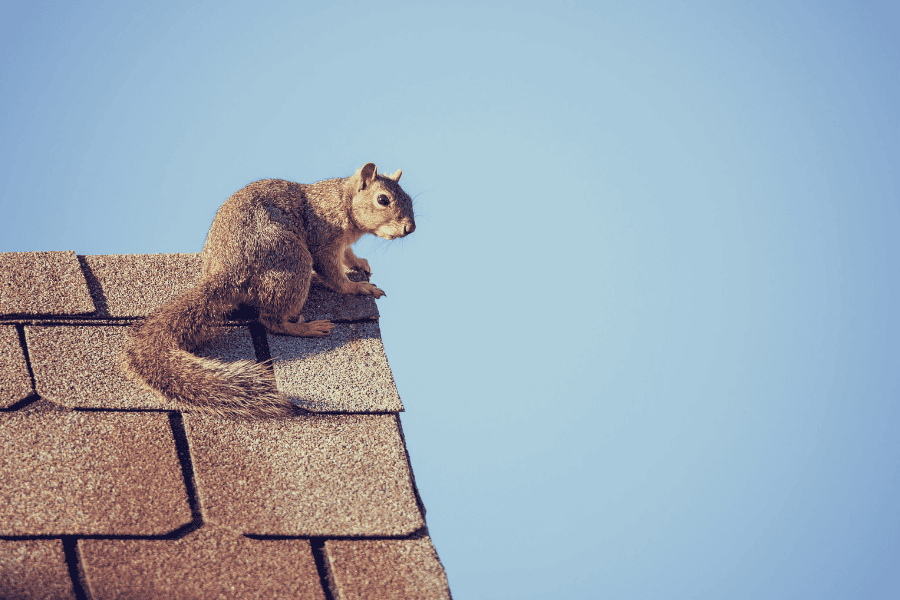
Jun 27, 2023 | Wildlife
Summer is a time when wildlife is often more active and visible around your home. While it can be exciting to see these animals, it’s important to take precautions to keep them out of your home and prevent any potential damage. Here is the most common summer wildlife you’ll begin seeing soon and some tips on how you can keep these critters away!
Squirrels
Squirrels are a common sight in many neighborhoods during the summer. While they can be fun to watch, they can also cause damage to your home and property.
To prevent squirrels in your attic or crawlspace:
- Make sure to seal any gaps in your home’s exterior
- Fix any holes in your roof or siding
- Trim back any tree branches that may be close to your home
Raccoons
Raccoons are another common summer wildlife that you may find around your home. They can be attracted to garbage cans and compost bins.
To prevent raccoons from being attracted to your property:
- Make sure to also seal any gaps or holes in your roof or siding
- Use trash cans with sealed lids
Snakes
Snakes are more active during the summer months and may be found around your home or yard. It’s not often that you’ll see venomous snakes near your property, but there are some that live in Georgia. Just be on the lookout while outside hiking or walking through wooded areas.
To prevent snakes from entering your home:
- Make sure to seal any gaps or holes in your foundation or walls
- Keep your yard tidy and free of debris
We hope these tips will help lessen the chances of wildlife finding their way indoors this summer. If you begin to suspect your home might have some uninvited guests, give your local wildlife control company a call today!
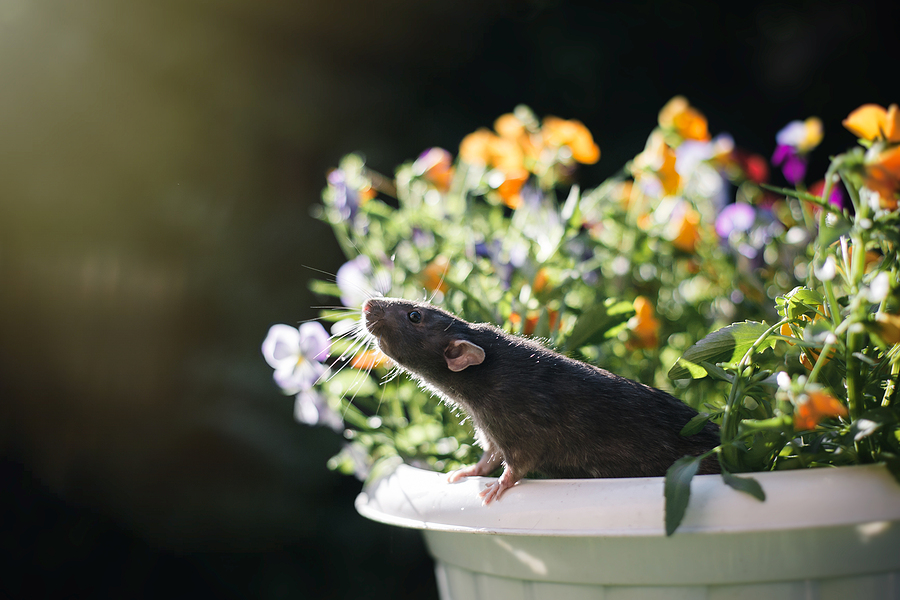
Apr 28, 2023 | Pest Control, Wildlife
Rodents such as mice, rats, and squirrels are overwintering pests, taking refuge inside your home during the colder months of the year. When spring arrives, these pests are already hiding in your attic, basement, crawlspace, garage, and even inside your walls. As the weather warms, they emerge for two reasons: searching for food and breeding season.
Rodents are dangerous to have inside your house for many reasons including:
- Chewing through wiring, drywall, and insulation
- Increasing your exposure to fleas, ticks, lice, mites, and more
- Contaminating your home with their urine and feces
- Spreading diseases like hantavirus, plague, and tularemia
Keeping rodents out of your home during any season of the year starts with prevention. Implement some of these rodent control tips this spring:
- Inspect doors and windows for loose or broken seals and repair or replace them immediately.
- Use screens on doors and windows, especially ones that are opened frequently.
- Seal any exterior cracks or gaps.
- Use mesh screens on chimneys, downspouts, and vents.
- Seal food in canisters with lids.
- Use trashcans with lids.
- Keep your yard mowed and shrubbery trimmed.
- Get rid of any yard debris.
- Keep firewood away from your house.
- Vacuum everywhere, especially where crumbs might be present.
If you have a problem with rodents or any other household pests, contact your local pest control company for a thorough evaluation.
You May Also Be Interested In:
The Differences Between Bumblebees and Honeybees
When Are Termites Most Active?
Common Rats and Mice You Might See this Spring
A Step-by-Step Guide to Spring Lawn Care
Protecting Your Pets from Fleas and Ticks
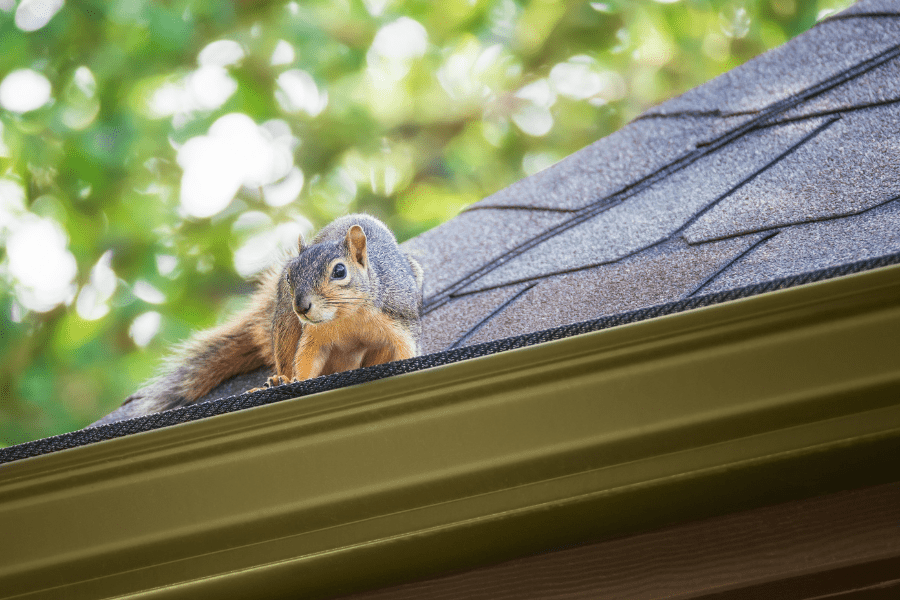
Oct 13, 2022 | Wildlife
Fall is in full swing, and winter is just around the corner. We aren’t the only ones preparing to stay indoors longer than usual. Wildlife are also thinking about making their way inside. This typically means our homes could become refuge for the critters. There are a few wildlife creatures to look out for once it begins to get cooler – squirrels, raccoons, rodents, and more!
Most homeowners don’t think they have a wildlife problem, because they’ve probably never seen it with their own eyes. That isn’t the case. Most homeowners don’t notice the problem because most of the creatures are nocturnal and will only be active at night. The most common signs of a wildlife problem are:
- Chew and gnaw marks around the attic, basement, or electrical wiring
- Garbage cans and bags that have been broken into
- Foul smells lingering around your home – could be urine or droppings
- Scratching sounds coming from the attic or walls
DIY Wildlife Prevention Tips
Many homeowners don’t even realize the things they’re doing that attract wildlife into their homes. Here are some of the best ways you can prevent an infestation in your home this winter!
- Close Access Points: Wildlife can enter your home through the smallest of openings. Make sure your home’s attics, vents, windows, chimney, and crawl space are secure. Seal any gaps and holes that can be considered entry points.
- Secure Garbage Containers: Most of the wildlife mentioned above are known to eat just about anything. Outside garbage containers offer a multitude of food options and the best way to deter them is to secure trash can lids, avoid overfilling containers, and clean out the cans regularly.
- Keep Trees and Shrubs Cut Short: When branches or shrubs are too close to your home, it gives squirrels, raccoons, and other critters easier access to your home. Keeping them cut short and away from your home will help cut the bridge of them getting inside.
- Don’t Leave Food Near Home: This goes hand in hand with the garbage can, but another big invitation to wildlife is your pet’s food bowls. Avoid leaving them out overnight, especially outdoors. Another tip is to pick up any fallen fruit and protect gardens with a fence or netting to keep animals out.
If you begin to notice signs of wildlife in or around your home, be sure to reach out to your local wildlife control company and they can help determine the critter causing the issues and create a customized solution to get rid of them.




